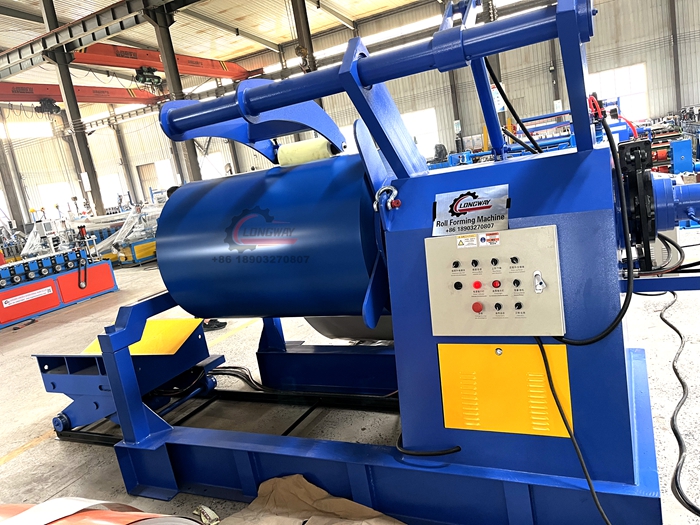roll forming aluminum factories
Roll Forming Aluminum An Essential Process in Modern Manufacturing
Roll forming is a versatile manufacturing process that has gained prominence in various industries, particularly in the production of aluminum products. Aluminum, known for its lightweight properties, corrosion resistance, and significant strength-to-weight ratio, is an ideal material for roll forming. This process involves the continuous bending of metal sheets into desired shapes using a series of rollers, making it efficient for producing long lengths of uniform profiles.
Understanding the Roll Forming Process
The roll forming process begins with a flat aluminum sheet being fed into a set of rollers. These rollers are designed with specific profiles that gradually shape the aluminum as it passes through. The process is highly customizable, allowing manufacturers to create a wide range of products, including channels, angles, and complex shapes. One of the key advantages of roll forming is its ability to produce intricate designs with minimal material waste. This is particularly important in an era where sustainability and resource optimization are at the forefront of manufacturing practices.
Benefits of Using Roll Formed Aluminum
1. Cost-Effectiveness Roll forming aluminum is a cost-effective solution for mass production. The process allows for high-speed manufacturing, which reduces labor and operational costs. Additionally, because roll forming can create long lengths of continuous shapes, it minimizes the need for secondary operations such as cutting and welding, further enhancing cost efficiency.
2. Precision and Consistency Roll forming offers a high degree of accuracy and repeatability. The automated nature of the process ensures that each piece produced meets the exact specifications required, reducing the likelihood of defects. This consistency is crucial for applications where precision is paramount, such as in the automotive or aerospace industries.
roll forming aluminum factories

3. Versatility of Designs One of the standout features of roll forming is its ability to produce a range of complex profiles and custom designs. This versatility makes it suitable for various applications, from architectural elements like window frames and gutters to industrial products like conveyor systems and shelving.
4. Durability Aluminum roll-formed products are strong and resistant to corrosion, making them ideal for both indoor and outdoor applications. Their durability ensures a long lifespan, which is essential for industries that require reliable performance over time.
Applications of Roll Formed Aluminum
The applications of roll formed aluminum are vast and varied. In the construction sector, roll-formed aluminum is often used for roofing systems, siding, and structural supports. In the automotive industry, it is leveraged for body panels, brackets, and frames. The electrical sector also utilizes roll-formed aluminum in the production of conduits and heat sinks, benefiting from the material’s thermal properties.
Conclusion
In summary, roll forming aluminum is a critical process that exemplifies the advancements in modern manufacturing techniques. Its ability to combine efficiency, cost-effectiveness, versatility, and durability makes it a go-to method across various industries. As demand for lightweight and strong materials continues to rise, the roll forming of aluminum will likely play an ever-more significant role in meeting the needs of manufacturers and consumers alike, paving the way for innovative designs and sustainable production practices.
-
Roof Panel Machines: Buying Guide, Types, and PricingNewsJul.04, 2025
-
Purlin Machines: Types, Features, and Pricing GuideNewsJul.04, 2025
-
Metal Embossing Machines: Types, Applications, and Buying GuideNewsJul.04, 2025
-
Gutter Machines: Features, Types, and Cost BreakdownNewsJul.04, 2025
-
Cut to Length Line: Overview, Equipment, and Buying GuideNewsJul.04, 2025
-
Auto Stacker: Features, Applications, and Cost BreakdownNewsJul.04, 2025
-
Top Drywall Profile Machine Models for SaleNewsJun.05, 2025








